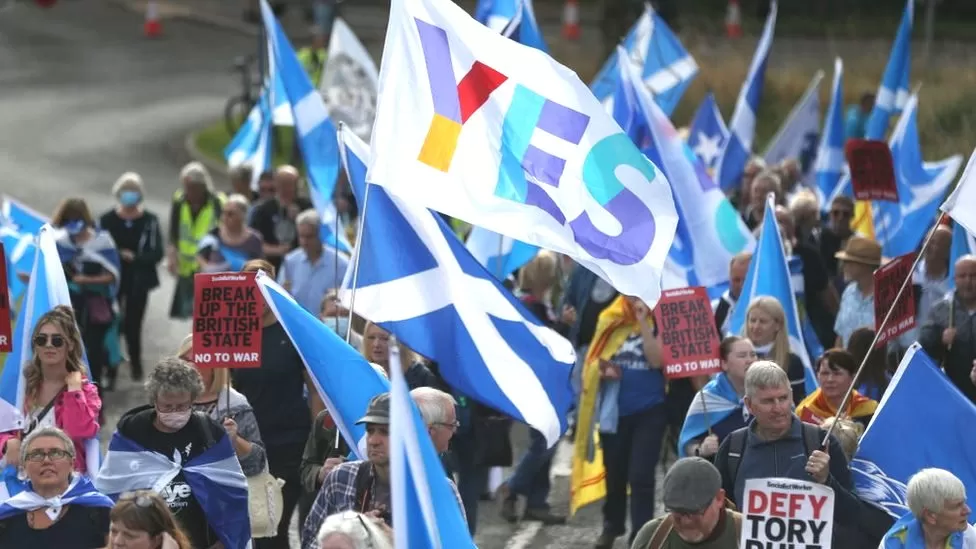The apex court of the United Kingdom ruled on Wednesday that the Scottish government cannot hold a second referendum on independence without the approval of the UK’s parliament in Westminster.
Scotland’s First Minister and leader of the Scottish National Party (SNP), Nicola Sturgeon, said in a press conference that she respected the court’s decision while indicating that for the SNP, the U.K.’s next general election would be a “de facto referendum” on Scottish independence.
In addition, the first minister of Scotland has called out the U.K. government for “democracy denial” and said: “We will find another democratic, lawful means for the Scottish people to express their will.”
Scotland already had an independence referendum. Back in September 2014, Scottish voters were given a choice between staying in the United Kingdom or becoming an independent country. They supported staying by 55 per cent to 45 per cent.
Supporters of an independent Scotland say that it could be “happier, wealthier, and fairer,” and that the citizens should have a say in how they are governed. (Al Jazeera)
However, the polls tell a slightly different story, as voters remain evenly split over whether or not they choose independence.
The Scottish Government has asked the UK Supreme Court whether it can pass legislation to prepare for an advisory second referendum without the necessary approval of the UK Parliament.
On Wednesday, the ruling suggested that it could not.
Robert Reed, the president of the UK Supreme Court, said: “The Scottish Parliament does not have the power to legislate for a referendum on Scottish independence.” (BBC)
After the ruling, Sturgeon said that “a law that doesn’t allow Scotland to choose our own future without Westminster consent exposes as myth any notion of the UK as a voluntary partnership and makes the case for Indy.”

